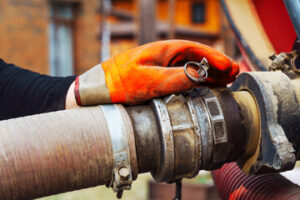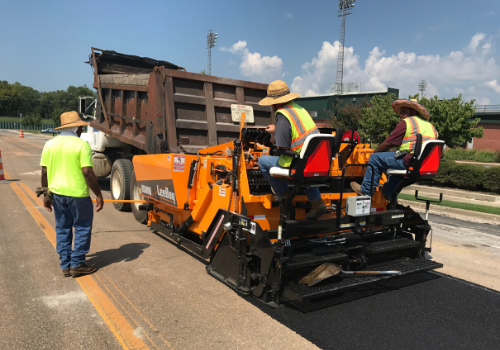Sewage backups are not only unsightly, but they can cause major health problems for your family. Bacteria and viruses thrive in raw sewage.
The key to avoiding a sewage problem is prevention. But if you experience a sewage backup, these tips can help you mitigate the damage and clean up quickly. Click https://www.allproutah.com/ to learn more.

Sewage backups aren’t just an inconvenience; they can also pose a health risk to you and your family. Bacteria and fecal matter in the water can cause gastroenteritis, and breathing it in can exacerbate existing respiratory conditions. It’s important to call sewage cleanup experts immediately to contain the spill and prevent microbial growth.
The most common causes of sewage spills are clogged pipes, infiltrating tree roots, and broken sewer lines. Hair, soap, grease, and other debris can build up in pipes, causing them to clog. Tree roots can infiltrate and cause blockages, especially if the tree is too large for the pipeline to accommodate. Broken or collapsed sewer lines can also result in sewage backup.
If you suspect a sewer line problem, turn off the main water valve to your home and locate the stoppage valve. Then, turn off all water use in your house until a plumber arrives to repair the issue.
A sewage spill isn’t just messy; it can be dangerous and cause serious damage to your home. If you don’t take the right precautions, contaminated water and mold will seep into your floors, carpets, walls, and furniture.
Professional sewage cleanup services can remediate the damaged areas, clean and disinfect the affected area, and restore your home. They can also identify the source of the sewage pipe rupture or backup and make repairs to prevent future problems.
Sewage leaks can be small and contained in a single room, or they could be extensive and contaminate multiple floors of your home. No matter the size of the sewage leak, it’s crucial to contact a local sewage spill restoration company as soon as possible. That will help limit the potential biohazard risk, protect your property, and allow them to clean up the sewage quickly and effectively.
While a sewage spill may seem daunting, cleanup isn’t impossible. With the right tools and training, cleaning up sewage is a relatively simple process. Remember that even if the water looks clear, germs are still present. That’s why you should always leave this job to the professionals.
If you love the tree in your yard but hate the pesky roots tearing up the sidewalk or clogging up the plumbing, it may be possible to eliminate those invasive root systems without killing the tree. Before digging up stumps and roots, though, call 811 or a local utility marking service to have the ground kept for water, sewer, electrical, and other services.
Then, remove the top layer of dirt and turf around the stump to expose the large lateral roots. Map out their possible reach, which can be two to three times the radius of the canopy and even more in dry climates. They can interfere with drain lines, septic tank systems, sewer main lines, sprinkler systems, and even crack foundations.
It’s a good idea to have an arborist evaluate the root system of any trees on your property and make recommendations for pruning or removal as needed. A few regular root treatments can also help keep invasive roots at bay. For example, pouring half a pound of rock salt into a toilet and flushing kills roots by robbing them of their moisture. That can be repeated monthly for ongoing maintenance. Another option is to install backwater prevention valves in the basement of your home and near each toilet. That will allow sewage to flow out but prevent it from backing into the house. These devices can be purchased at most hardware and home improvement stores. They’re relatively easy to install and typically cost less than $200.
The sewer system is designed to carry away wastewater safely and efficiently. However, problems with the system can cause sewage to back up into homes and businesses. While a sewage backup isn’t as destructive as a flood or fire, it can still cause major damage and lead to serious health issues for those who live or work in the affected areas.
If you suspect a sewage leak in your yard, immediately call the health department or a sewage removal company. They can instruct you on what to do next and will help you get your home or business back to a safe, comfortable state.
Sewage is filthy and contains bacteria that can make you sick. If you contact it directly, you could suffer from stomach bugs, infections, and E. coli. Inhaling sewage can also lead to respiratory illnesses such as bronchitis and pneumonia.
A sewage cleanup company can pump out the contaminated water and remove any debris that has spilled from your property. They can also take steps to identify the source of the sewage leak and prevent future occurrences. They’ll also work to repair any damage caused by the sewage and restore the area to its pre-damaged state.
In addition to sewage removal, a sewage cleanup company can disinfect any areas of your home or business that have been affected by the contamination. That includes carpets, flooring materials, wallboards, and furniture. This process is called deodorization and can significantly reduce the foul odor of a sewage leak.
Finally, a sewage cleanup company can also treat any minor sewage spills. That is done by sprinkling the area with garden lime from your agricultural store. The lime helps the sewage break down quickly and can alleviate the bad odor.
While you may be tempted to handle a sewage cleanup on your own, this shouldn’t be attempted. Working with sewage requires special equipment and the proper training to avoid serious health hazards. It can also be dangerous if you’re working around active electrical lines. A professional sewage cleanup company can help you safely and quickly.
If sewage is spilled outdoors, it must be contained to minimize health and property damage. The first step is to cordon off the area and keep people and pets away. You should also wear protective clothing such as rubber gloves, face masks, and safety goggles. The next step is to sweep up the sewage and place it in bin bags for disposal. That includes any items that have come into contact with the sewage, such as carpets and furniture. You should not try to use them again as they are likely to be contaminated.
For larger sewage spills, you can use a vacuum tanker to collect and dispose of the liquid at an approved site. That will require the services of a professional to ensure the sewage is safely removed and that you are not exposed to harmful bacteria or pathogens.
Keeping the area closed off as much as possible is also vitally important. If you can, ask anyone who lives in your home to leave until the area has been cleaned and disinfected, especially older adults and those with compromised immune systems. That will help to reduce any risk of gastroenteritis and occupational asthma caused by direct contact with the sewage.
Sewage is not only a dangerous substance for people to come into contact with, but it can also be extremely toxic to pets and plants. It can cause severe respiratory problems and many other health conditions. You should also limit your exposure to sewage gases, including methane and hydrogen sulfide. That can cause various symptoms, including headaches, dizziness, and nausea.
If sewage is allowed to seep into the house, it can contaminate the entire property and pose a serious health risk. That is particularly true if the sewage has made its way to electrical outlets and appliances in the basement. It is essential to disconnect and unplug any appliances exposed to sewage water, as this will help avoid an electrical fire.


